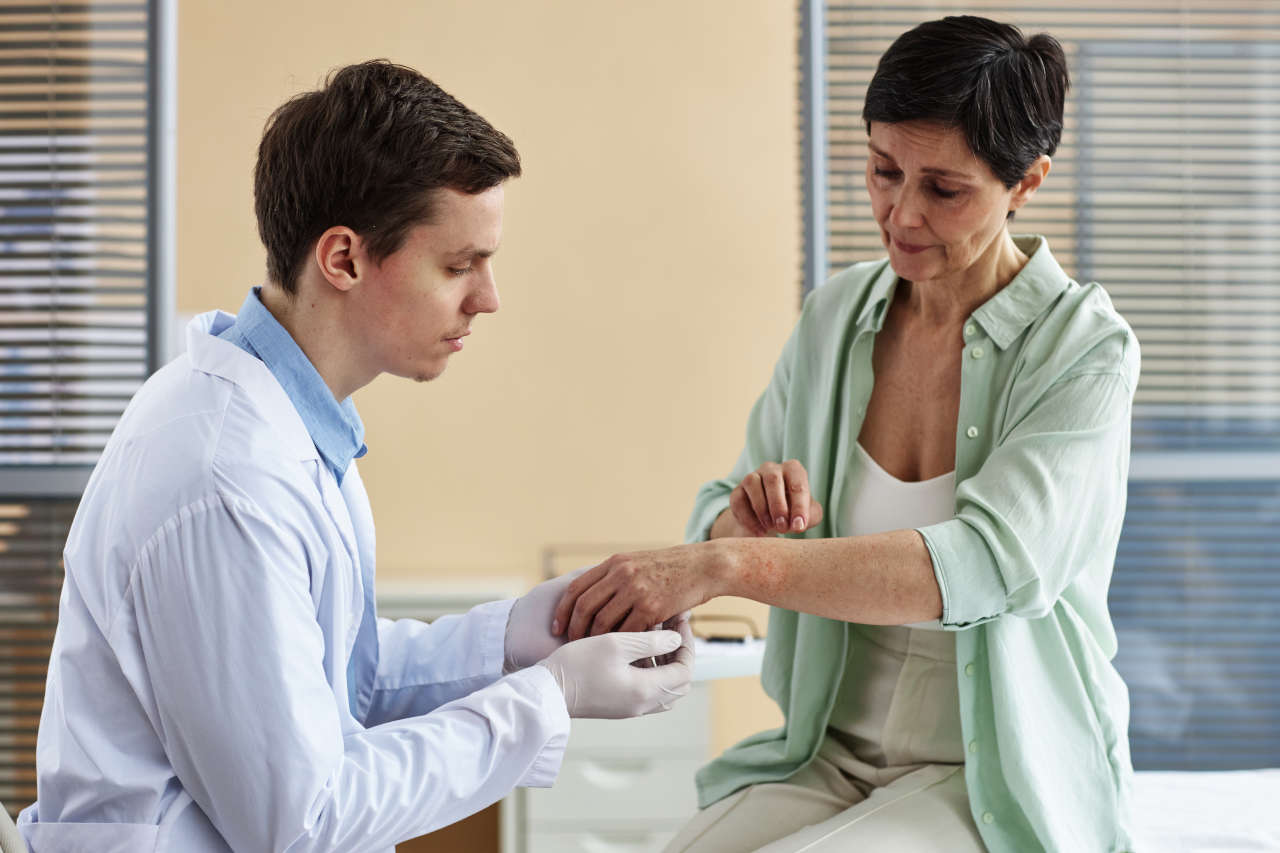
Kimyrsa, also known by its generic name, oritavancin, is a potent, long-acting antibiotic typically prescribed for the treatment of bacterial skin infections in adults. This antibacterial medication is classified as a glycopeptide antibiotic. It is effective against gram-positive bacteria, including methicillin-resistant Staphylococcus aureus (MRSA), Streptococcus pyogenes, and Enterococcus faecalis.
Speak to a Specialist
About Copay AssistanceKimyrsa was first approved by the U.S. Food and Drug Administration in August 2014 for the treatment of bacterial skin infections. It is given as a single, one-hour IV infusion. This reduces the need for long hospital stays or repeated doses compared to other antibiotics, such as vancomycin.
Key Modes of Action
Bacteria have a protective layer called a cell wall, which works like a sturdy armor that protects and allows them to survive under harsh surrounding environments (i.e., stress, heat, or antibiotics).
Kimyrsa belongs to the lipoglycopeptide class of antibiotics. It has rapid bactericidal (bacterial killing) activity and works by targeting the bacteria’s cell wall. The cell wall is needed for bacterial growth and survival. Kimyrsa infusions combat bacteria through three bactericidal mechanisms of action:
1. Blocking Cell Wall Synthesis
Kimyrsa blocks the bacteria from being able to build a cell wall around itself.
2. Disturbing Bacterial Membrane Integrity
Kimyrsa disturbs bacterial membrane integrity by creating tiny holes in the cell wall, leading to depolarization, permeabilization, and rapid cell death.
3. Inhibiting Key Steps in Cell Wall Synthesis
Kimyrsa blocks key steps (i.e., transglycosylation and transpeptidation) in the cell wall synthesis process, which makes it difficult for resistant bacteria (bacteria that are difficult to treat and have limited treatment options) to survive.
Through these three mechanisms of action, Kimyrsa and other glycopeptide antibiotics are able to target certain resistant gram-positive bacteria that can cause severe and complicated skin infections, such as methicillin-resistant Staphylococcus aureus (MRSA), vancomycin-resistant Enterococcus species (VRE), and others.
Indication and Usage
Kimyrsa infusions are approved for the treatment of adults with acute bacterial skin and skin structure infections (ABSSSI). ABSSSI includes cellulitis (severe infection in the deeper layer of the skin), skin abscesses (buildup of the pus within the skin surface), and wound infections.
These infections are suspected to be caused by antimicrobial-resistant gram-positive bacteria, including MRSA and Staphylococcus aureus, Streptococcus pyogenes, and Enterococcus faecalis.
Kimyrsa is recommended only for treating or preventing infections that are known or strongly suspected to be caused by bacteria. This helps prevent the development of drug-resistant bacteria and maintains the effectiveness of Kimyrsa and other antibiotic medications.
Dosage and Administration of Kimyrsa
Kimyrsa is available in a single-dose vial containing 1,200 mg of lyophilized powder of oritavancin.
The recommended dose of Kimyrsa for adult patients is 1,200 mg, which is administered slowly in the vein (IV infusion) by a healthcare provider over 1 hour.
Preparation of Kimyrsa for Intravenous Infusion
- Before being administered, the powdered form of Kimyrsa must be reconstituted with 40 ml of sterile water.
- Further dilute the reconstituted solution by first removing 40 ml from a 250 ml IV diluent bag of dextrose 5% in water (D5W) or 0.9% sodium chloride, and then inject the 40 ml of Kimyrsa into the IV diluent bag, for a total volume of 250 ml.
- Kimyrsa shouldn’t be infused with any other medications in the same IV line.
- Infusion bags containing diluted intravenous solution should be used within 4 hours if stored at room temperature or within 12 hours if refrigerated between 2° and 8°C (36° and 46°F).
Get Financial Assistance
Reported Adverse Effects (Side Effects)

Kimyrsa and other glycopeptide antibiotics are generally well-tolerated, but they can still cause side effects that you should consider before taking them.
Common Side Effects
The most common side effects reported by ≥3% of patients after undergoing Kimyrsa infusions were headaches, nausea, vomiting, limb abscesses, tachycardia (fast heart rate), subcutaneous abscesses, and diarrhea.
Serious Side Effects
The adverse reactions occurring in ≥2 patients after taking Kimyrsa were hypersensitivity (anaphylaxis), pruritus (itching), chills, severe diarrhea (watery or bloody stool), stomach pain, and pyrexia (fever).
Kimyrsa Contraindications
Patients with known hypersensitivity should not take oritavancin products. Furthermore, intravenous unfractionated heparin sodium, an anticoagulant (blood thinner), should not be used for 5 days (120 hours) after taking oritavancin. This is because oritavancin can cause the activated partial thromboplastin time (aPTT) test, which measures blood clotting, to show falsely high results for up to 5 days.
Precautions
Before receiving a Kimyrsa antibiotic treatment, tell your healthcare provider if you:
- Are pregnant or intend to become pregnant
- Are breastfeeding or plan to breastfeed
- Are allergic to oritavancin
- Are receiving heparin injections
- Are taking any prescription medications, over-the-counter medications, vitamins, herbal products, or nutritional supplements
- Have preexisting liver disease or coagulation disorders (bleeding problems)
Drug Interactions
Kimyrsa can interact with other medications, which can reduce its effectiveness or raise the risk of side effects. For example, anticoagulants such as heparin or warfarin should not be taken together with Kimyrsa because they can interfere with coagulation tests.
Similarly, Kimyrsa should also not be mixed or administered alongside other antibiotics in the same IV line due to potential incompatibility.
Consult your healthcare provider if you’re taking any of these medications.
Get Copay Assistance Now
Kimyrsa Cost
Kimyrsa infusions are an expensive treatment, and its high price can be a barrier for patients without insurance coverage. The approximate cost for a single 1,200 mg dose of Kimyrsa, available as an intravenous powder for injection, is around $5,629, though prices may vary by pharmacy.
Kimyrsa Benefits
Kimyrsa is an antibiotic that exerts a long-lasting effect on patients. It is designed to work with just one dose because it stays active in the body for a long time — about 16 days. Kimyrsa is slowly removed from the body and as a result, it continues to fight bacteria for many days after it is given. This feature of Kimyrsa reduces the need for multiple doses, allowing the infection to be effectively treated without requiring a lengthy hospital stay.
REFERENCES:
- Jackson, B. T., Cluck, D. B., Henao-Martínez, A. F., & Chastain, D. B. (2023). Kimyrsa and Orbactiv – A Tale of Two Formulations. Drug Design, Development, and Therapy, 17, 737. https://doi.org/10.2147/DDDT.S324285
- Oritavancin Injection: MedlinePlus Drug Information. (n.d.). https://medlineplus.gov/druginfo/meds/a614042.html
- Hoover, R. K., Krsak, M., Molina, K. C., Shah, K., & Redell, M. (2022). Kimyrsa, An Oritavancin-Containing Product: Clinical Study and Review of Properties. Open Forum Infectious Diseases, 9(5), ofac090. https://doi.org/10.1093/ofid/ofac090
- The Food and Drug Administration (FDA): Kimyrsa Prescribing Information: https://www.accessdata.fda.gov/drugsatfda_docs/label/2021/214155s001lbl.pdf
- DailyMed – KIMYRSA- oritavancin diphosphate injection, powder, lyophilized, for a solution. (2021) https://dailymed.nlm.nih.gov/dailymed/drugInfo.cfm?setid=5e755c40-6e73-4572-b474-4d8a131693d1
- Heo, Y. (2022). Oritavancin (KIMYRSATM) in acute bacterial skin and skin structure infections: a profile of its use in the USA. Drugs & Therapy Perspectives, 38(2), 57–63. https://doi.org/10.1007/s40267-021-00888-1
- Hoover, R. K., Krsak, M., Molina, K. C., Shah, K., & Redell, M. (2022). Kimyrsa, An Oritavancin-Containing Product: Clinical Study and Review of Properties. Open Forum Infectious Diseases, 9(5). https://doi.org/10.1093/ofid/ofac090
- Corey, G. R., Kabler, H., Mehra, P., Gupta, S., Overcash, J. S., Porwal, A., Giordano, P., Lucasti, C., Perez, A., Good, S., Jiang, H., Moeck, G., & O’Riordan, W. (2014). Single-Dose Oritavancin in the treatment of acute bacterial skin infections. New England Journal of Medicine, 370(23), 2180–2190. https://doi.org/10.1056/nejmoa1310422












